Intro
Discover effective concussion treatment tips, including rest, rehabilitation, and symptom management, to aid in recovery from mild traumatic brain injuries, promoting brain health and reducing post-concussion syndrome risks.
Concussions are a type of traumatic brain injury that can occur when the head is hit or shaken violently, causing the brain to move back and forth inside the skull. This can lead to a range of symptoms, including headaches, dizziness, confusion, and memory problems. Concussions can be caused by a variety of factors, including sports injuries, car accidents, and falls. If you or someone you know has suffered a concussion, it's essential to seek medical attention right away. In this article, we'll explore five concussion treatment tips to help you recover from a concussion and get back to your normal activities.
The importance of proper concussion treatment cannot be overstated. If left untreated, concussions can lead to long-term brain damage, memory problems, and even depression. Furthermore, repeated concussions can increase the risk of chronic traumatic encephalopathy (CTE), a degenerative brain disease that can cause memory loss, dementia, and other cognitive problems. By following the right treatment plan, you can reduce the risk of long-term complications and promote a speedy recovery.
Concussions can affect anyone, regardless of age or activity level. While athletes are at higher risk of concussions due to the physical nature of their sports, anyone can suffer a concussion from a fall, car accident, or other traumatic event. It's essential to be aware of the symptoms of concussions and seek medical attention immediately if you or someone you know has suffered a head injury. With the right treatment and care, it's possible to recover from a concussion and get back to your normal activities.
Understanding Concussions
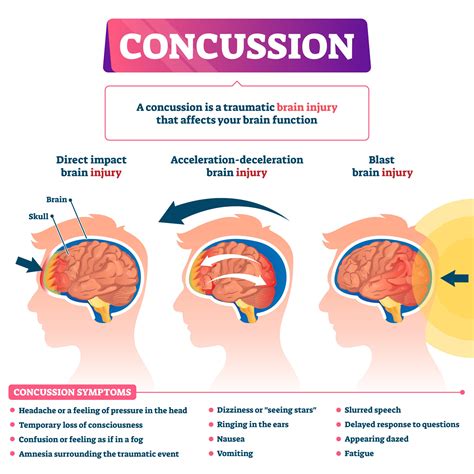
Types of Concussions
There are several types of concussions, including mild, moderate, and severe concussions. Mild concussions are the most common type and typically resolve on their own within a few days. Moderate concussions can cause more severe symptoms and may require medical attention. Severe concussions can cause long-term brain damage and require immediate medical attention.Concussion Treatment Tips
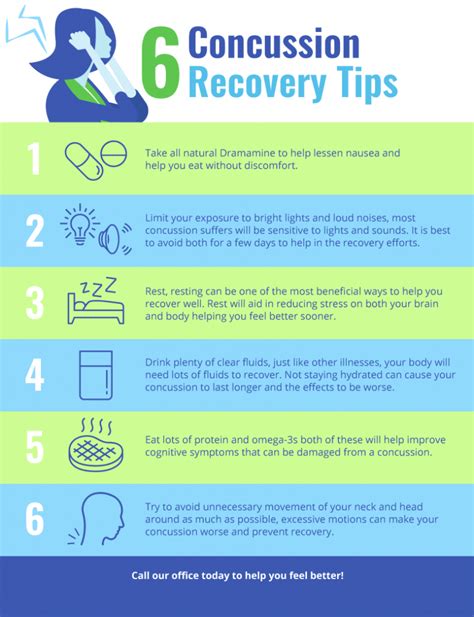
Benefits of Proper Concussion Treatment
Proper concussion treatment can have numerous benefits, including reducing the risk of long-term brain damage, promoting a speedy recovery, and reducing the risk of repeated concussions. By following the right treatment plan, you can reduce the risk of complications and get back to your normal activities.Concussion Recovery Timeline
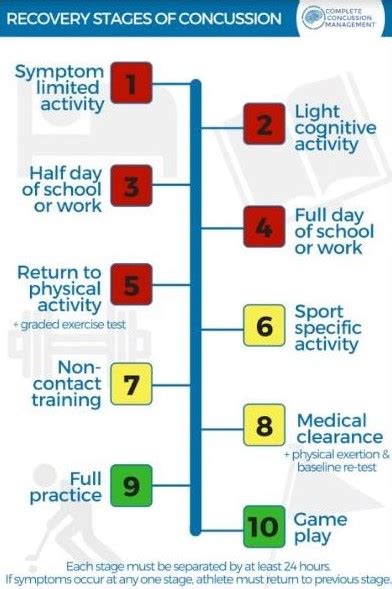
Factors That Affect Concussion Recovery
Several factors can affect concussion recovery, including the severity of the concussion, the individual's overall health, and the effectiveness of the treatment plan. By seeking medical attention right away and following the right treatment plan, you can promote a speedy recovery and reduce the risk of complications.Concussion Prevention Tips
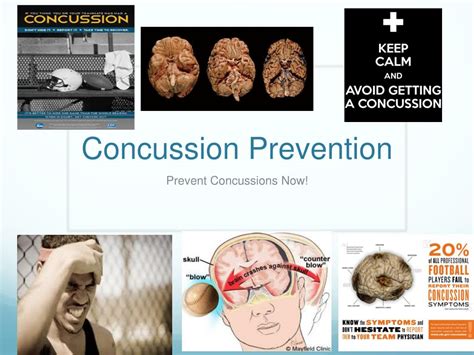
Benefits of Concussion Prevention
Concussion prevention can have numerous benefits, including reducing the risk of long-term brain damage, promoting a healthy lifestyle, and reducing the risk of repeated concussions. By taking steps to reduce the risk of concussions, you can promote a healthy and active lifestyle.Concussion Diagnosis and Treatment
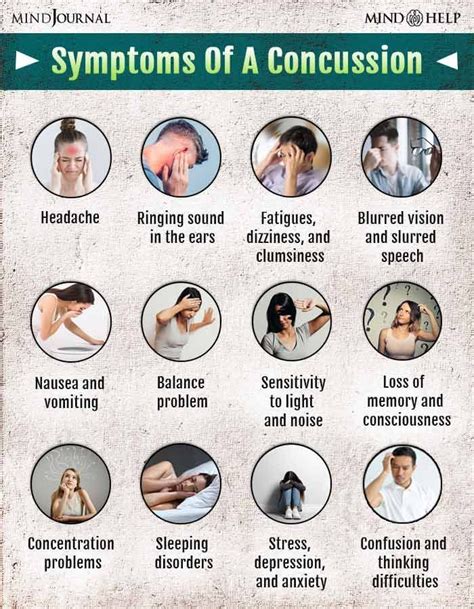
Types of Concussion Treatment
There are several types of concussion treatment, including rest, physical therapy, and cognitive therapy. The type of treatment will depend on the severity of the concussion and the individual's overall health.Concussion Rehabilitation
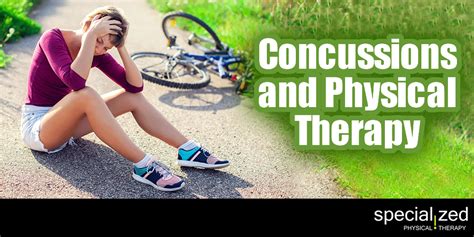
Benefits of Concussion Rehabilitation
Concussion rehabilitation can have numerous benefits, including promoting a speedy recovery, reducing the risk of long-term brain damage, and improving cognitive function. By seeking medical attention right away and following the right treatment plan, you can promote a healthy and active lifestyle.Conclusion and Next Steps
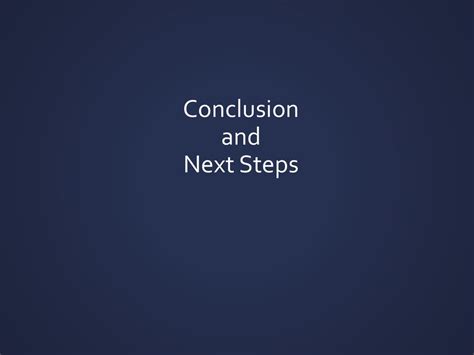
We hope this article has provided you with valuable information about concussions and concussion treatment. If you have any questions or concerns, please don't hesitate to reach out. We invite you to share this article with others who may be interested in learning more about concussions and concussion treatment.
What are the symptoms of a concussion?
+The symptoms of a concussion can include headaches, dizziness, confusion, and memory problems. In some cases, concussions can also cause emotional symptoms, such as anxiety, depression, and irritability.
How long does it take to recover from a concussion?
+The recovery time for a concussion can vary depending on the severity of the concussion and the individual's overall health. In general, most people can recover from a concussion within 7-10 days.
Can concussions be prevented?
+While concussions can't always be prevented, there are several steps you can take to reduce the risk of concussions. These include wearing protective gear, avoiding contact sports, staying alert, getting plenty of sleep, and staying hydrated.
